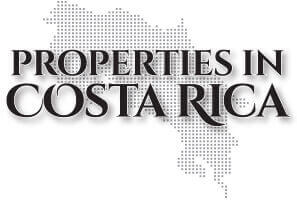Costa Rica Gets Green Building Council
Search Your Property
By Fabián Borges
Tico Times Staff
With the goal of promoting a more energy-efficient and environmentally sustainable construction industry, representatives from 14 sectors of the construction industry, from building material producers and construction firms to real estate developers, agents and financiers, recently teamed up to establish the Costa Rican Green Building Council. “The Green Building Council’s goal is to go beyond existing regulations and propose ways of better developing the constructed space,” explained Alejandro Ugarte, the council’s first executive director. “Costa Rica has developed a globally recognized brand as a country that protects the natural environment. However, this agenda is limited to the natural space, the green space. But who ensures the sustainability of the constructed space, the space inhabited by human beings?”
The construction regulations and environmental impact laws regulating the construction industry in Costa Rica are insufficient to ensure a sustainable constructed space, according to Ugarte. That San José’s streets flood during heavy rains and its chronic congestion creates serious air pollution are signs that not enough is being done to ensure the sustainability of the constructed space, he said.
LEED a la Tica
The council intends to develop a voluntary environmental sustainability certification aimed at assessing the environmental impact of materials and buildings. The standard will also serve as a blueprint outlining what companies can do to operate in a more sustainable manner.
The success of such standards will depend on the companies’ ability to strike a delicate balance between protecting the environment and not imposing an unsustainable financial burden on the private sector; in other words, in addition to being environmentally friendly, standards must be market-friendly, Ugarte explained.
The standard promoted by the council will be based on the U.S. Green Building Council’s Leadership in Energy and Environmental Design (LEED) rating system, the leading benchmark used to certify the adoption of sustainable green building and development practices in the United States. LEED rating systems are developed and updated through consensus-based discussions among volunteer committees from different sectors of the construction industry. At the core of the Costa Rican council will be a series of working groups charged with adapting LEED to the country’s specific conditions.
The Costa Rican council plans to make modifications to LEED to take into account the climatic, geographic and energy-generation differences that exist between Costa Rica and the United States. For example, given Costa Rica’s year-round moderate temperatures and that nearly 95 percent of electricity is generated using sustainable technologies, energy efficiency and building insulation should be less of a concern than in the United States. At the same time, given the country’s high levels of rainfall, proper water management should play a larger role in certification here, Ugarte explained.
The council plans to begin offering regular workshops and training seminars for people involved in the different sectors of the construction industry. The goal will be to help them stay up to date on the latest trends and international best practices in green building. Creating a regular magazine on green buildings is a longer-term goal of the council.
These types of actions will help to gradually convince more people in the industry of the merits of greener buildings, Ugarte said.
A Private-Sector Effort
As is the case with its counterparts in the United States and other parts of the world, the Costa Rican Green Building Council is a voluntary, private sector-led initiative. The council, however, in alliance with the Federated Association of Engineers and Architects (CFIA), plans to lobby the government for tax incentives aimed at promoting the use of sustainable construction products and the development of green buildings. Possible incentives for this purpose include income or property tax breaks and reduced permit costs. However, the council does not aim to become a specialized lobbying group. “Our goal is not to incorporate the government and ask it to solve everything,” Ugarte said. “It’s the private sector that is looking for solutions.”
